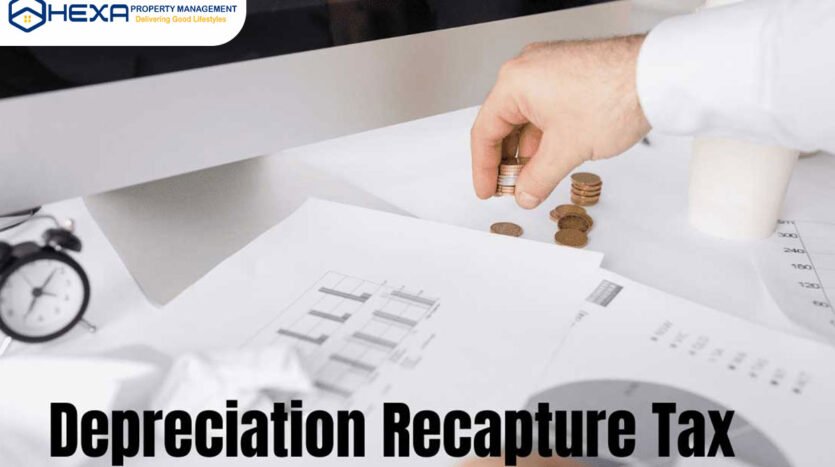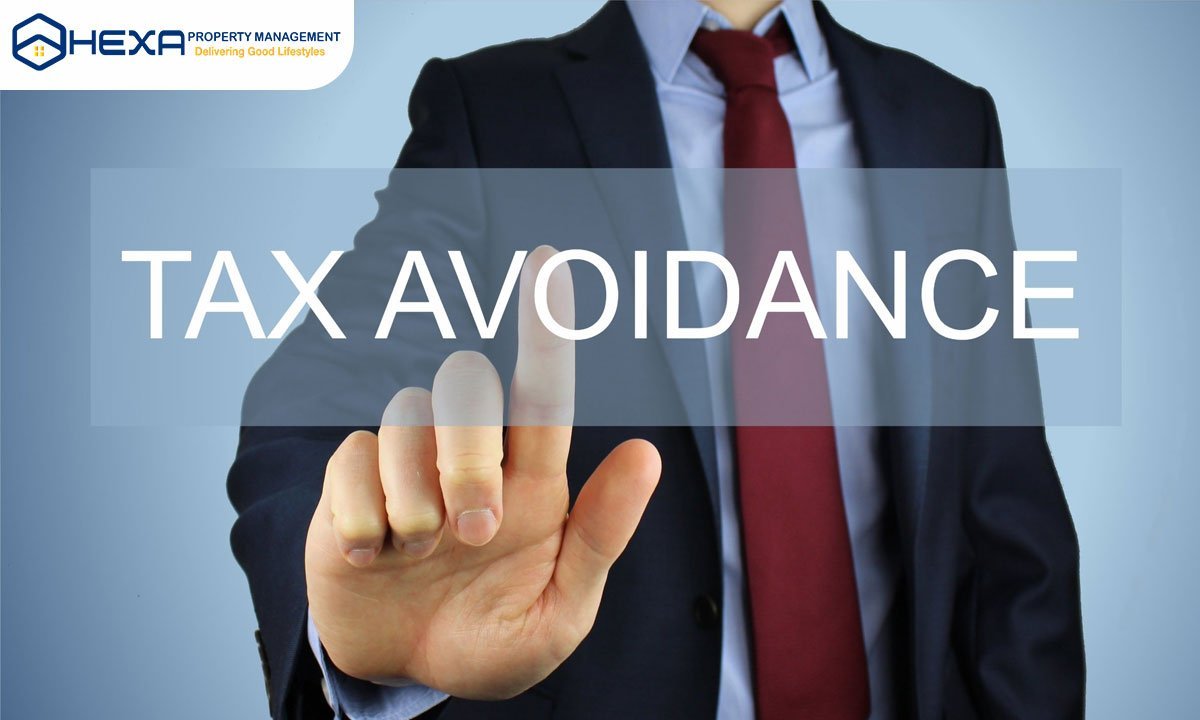November 27, 2023
Depreciation Recapture Tax: What You Need to Know

Depreciation recapture tax is calculated not only for asset sales but also for rental properties, accompanied by considerations like capital gains taxes and other factors influencing profits.
In this article, we’ll unravel the depreciation recapture, explore its implications on different asset types, delve into calculation methods, and provide strategies to potentially mitigate or defer this tax burden.
What is depreciation recapture tax?
Depreciation recapture is like a tax bill that pops up when you sell something like a building or equipment that you’ve claimed depreciation on. Basically, when you sell it for more than its value for tax purposes, you’ll owe taxes on that extra money you made.
So, let’s say you bought a piece of equipment for $10,000, but you claimed $5,000 in depreciation on your taxes. Later, you sell it for $8,000. Even though you sold it for less than you bought it because you claimed that $5,000 in depreciation, you made a profit of $3,000. That $3,000 is now considered income that you owe taxes on.
For things that aren’t buildings or land, the money you made from depreciation recapture gets taxed just like your regular income. But for real estate, the most they’ll take for depreciation recapture is 25% of what you gained from selling it.
To figure out how much you owe in depreciation recapture, you need to compare what you paid for the thing originally (adjusted cost basis) with how much you sold it for. The difference between those two amounts is what gets taxed for depreciation recapture.
Understand depreciation recapture on rental properties
Depreciation recapture rental property adds another layer of complexity when it’s time to sell. See, when you sell a rental place, it’s not just a straightforward deal. There are a couple of taxes knocking at your door.
You’ve got your regular capital gains tax, which is like a tax on the profit you made from selling the property. But there’s also an extra tax on the bit you saved from claiming depreciation over the years. This part gets a different treatment.
Now, if you used a method called straight-line depreciation (which spreads out the write-off evenly), the tax on that bit isn’t treated as ordinary income. Instead, it gets lumped in with your capital gains tax.
So, part of the profit beyond what you paid originally gets taxed as a capital gain, while the part related to depreciation gets taxed at a different rate. This specific tax rate for the depreciation bit is known as the unrecaptured section 1250 rate. For 2023, this rate has a maximum cap of 25%. It’s a way the IRS puts a limit on how much they can take from that depreciation-related profit when you sell a rental property.
How to calculate your depreciation recapture?
Calculating depreciation recapture involves a few steps. First, you figure out the cost basis, which is what you originally paid for the thing.
Then comes the adjusted cost basis. That’s the original cost minus all the deductions you claimed over the years for its wear and tear.
Once you have those numbers, you subtract the adjusted cost basis from what you sold the thing for. If this ends up being a loss when you sell, you don’t have to worry about depreciation recapture.
But if you make a profit, it’s time to break out the calculator. The IRS compares the profit you made from selling the thing with all the deductions you took for its wear and tear. Whichever is smaller between these two amounts becomes the depreciation recapture.
It’s important to know that this depreciation recapture is treated like regular income by the IRS. So, even though you might have expected a lower capital gains tax, this part gets taxed just like the money you earn from working.
This whole process applies not just to things you sell but also to rental properties. However, there are some extra things to think about when it comes to rental properties, like capital gains taxes and other taxes that might affect the profit you make.
Example of depreciation recapture calculator for rental property
Let’s break down how depreciation recapture works with an example. Imagine you bought a rental property for $200,000 and over time, you claimed $50,000 in depreciation. Now, you’re selling it for $300,000.
Start with the original cost basis, which is the initial $200,000 purchase price. Then, calculate the adjusted cost basis by subtracting the claimed depreciation: $200,000 – $50,000 = $150,000.
Next, find the difference between the sale price and the adjusted cost basis: $300,000 – $150,000 = $150,000.
If you were selling at a loss, there wouldn’t be any depreciation recapture. But let’s assume you make a profit.
The IRS looks at your profit from selling ($100,000) and the depreciation you claimed ($50,000). They choose the smaller amount for your depreciation recapture, which in this case is the $50,000 you claimed in depreciation.
Keep in mind, that this recapture isn’t taxed at the lower capital gains rate. Instead, it’s considered regular income and taxed according to the standard income tax rates set by the IRS.
How to avoid depreciation recapture tax on my rental properties?
Avoiding depreciation recapture for rental properties involves a few strategic moves.
IRS Section 121 exclusion
If the property you’re selling was your primary residence for at least two out of the last five years, you might be able to exclude up to $250,000 (if you’re single) or $500,000 (if you’re married) of the profits from taxation.
1031 exchange
This fancy term means you can defer paying capital gains tax by reinvesting the money from selling your rental property into another similar property.
It’s like a swap that keeps the tax collector at bay, allowing you to move your investment without facing immediate taxes.
Transfer to your heirs
By doing this, your kids or grandkids can sell it without facing depreciation recapture or capital gains tax immediately. They might have different tax implications down the road, but it gives them a fresh start when they sell.
Selling the property at a loss
Although not the ideal scenario, can help sidestep the depreciation tax on a rental property. It’s not the happiest option, but sometimes cutting your losses can save you from dealing with extra taxes on the depreciation recapture.
FAQs
Why is Land Exempted from Being Classified as a Depreciable Asset?
Land doesn’t depreciate, so it’s not considered for depreciation recapture tax. When dealing with rental property, depreciation applies to the buildings and structures, not the land.
Typically, buildings can be depreciated over around 27.5 years, allowing owners to gradually claim their decrease in value against income.
State rules might vary, but land is generally seen as non-depreciable due to its enduring value.
Where to report depreciation recapture?
If you’re dealing with business property sales and have depreciation recapture, you report it on IRS Form 4797. This form is specifically designed for reporting gains or losses from the sale of business property, including any depreciation recapture.
However, for personal gains that involve depreciation recapture, you’d use Schedule D and Form 1040. Schedule D is where you report capital gains and losses, including any depreciation recapture on personal assets.
Form 1040 is the main individual tax return form where you report your income, deductions, and tax credits, including the information from Schedule D.
In short, depreciation recapture tex affects how much you owe when selling assets or rental properties you claimed depreciation on. It’s like a tax bill on the profits you made from selling these items. Understanding these rules helps manage taxes and make informed decisions that impact your financial outcomes in the future.
Learn more: Articles for investors
















